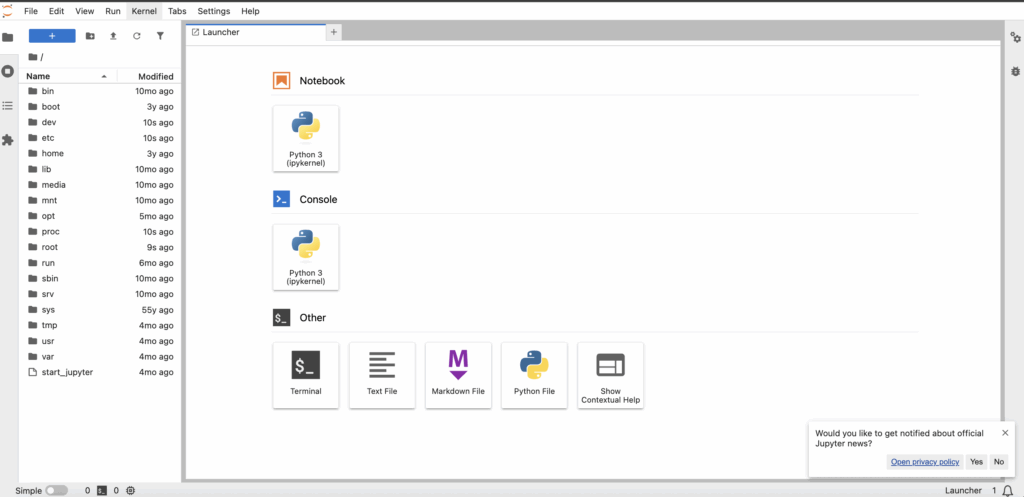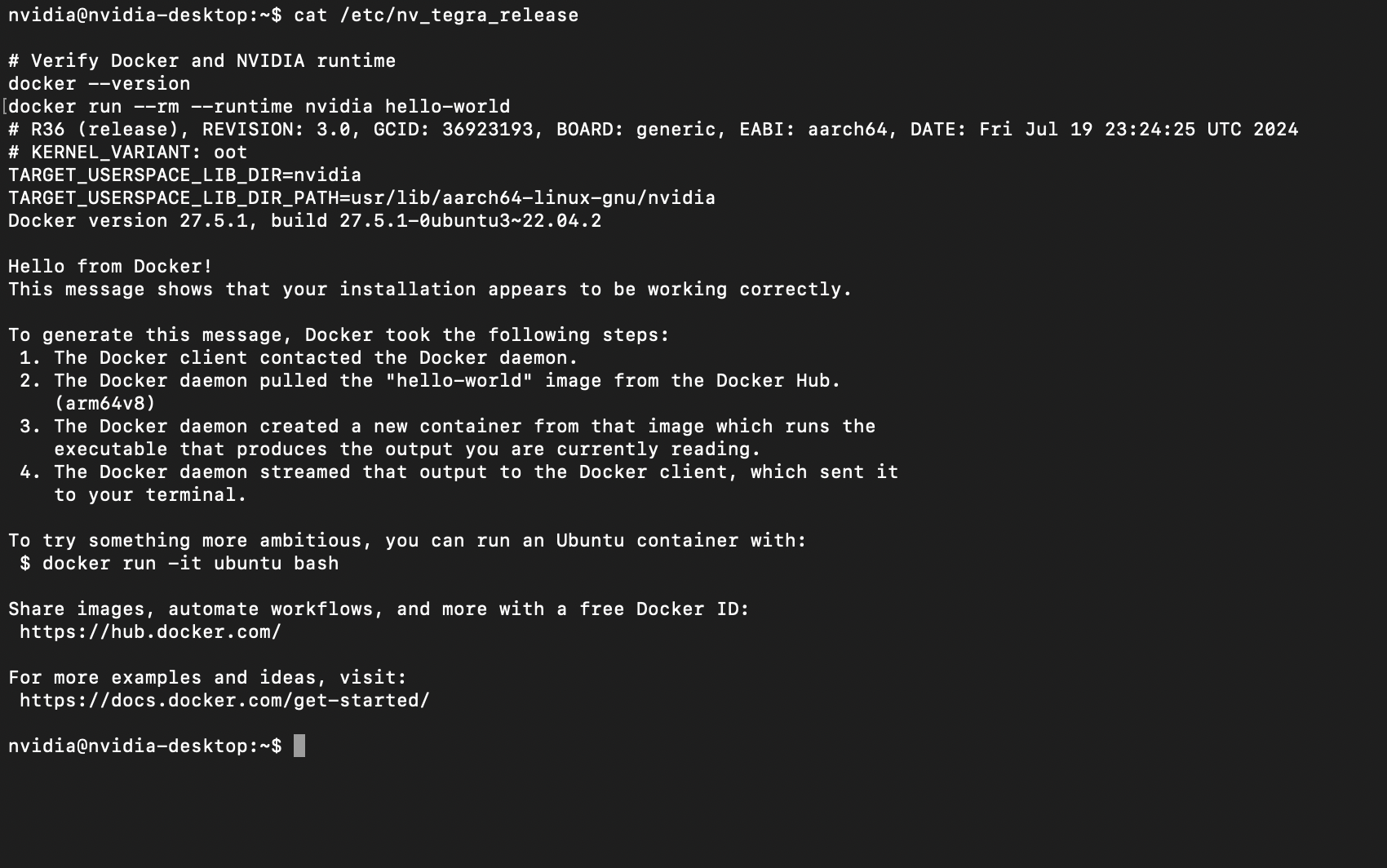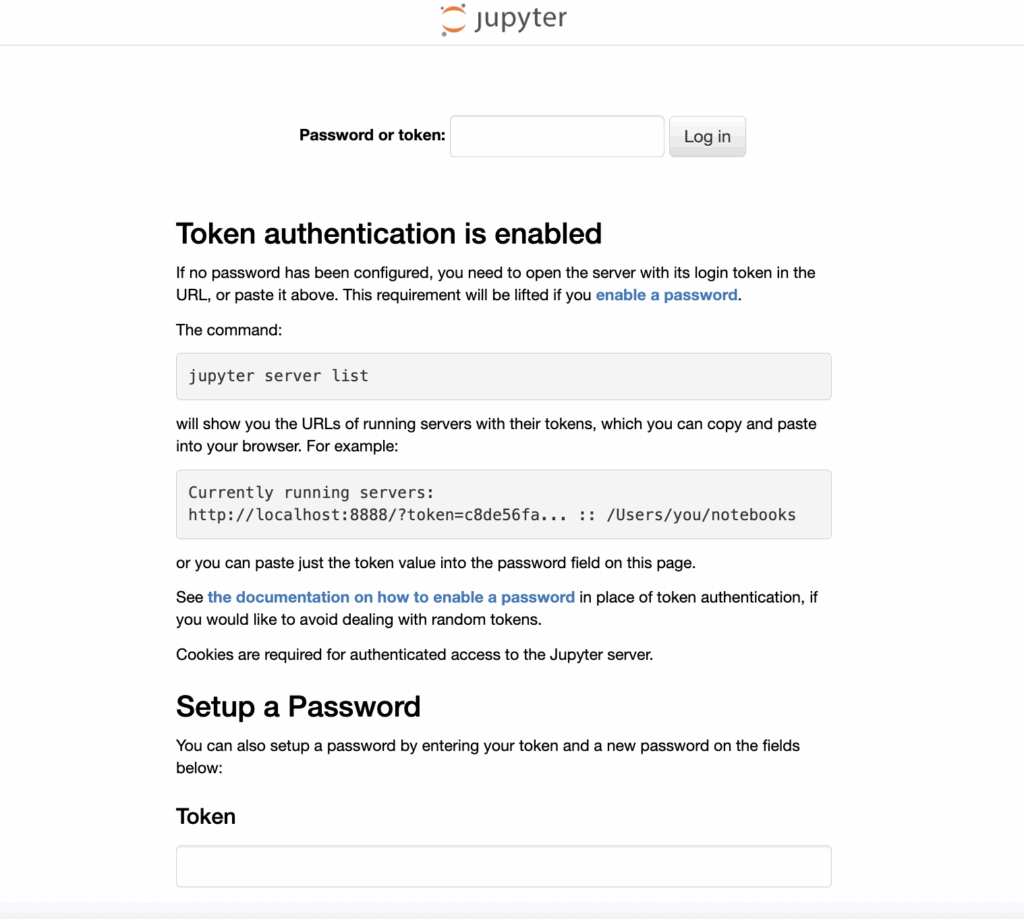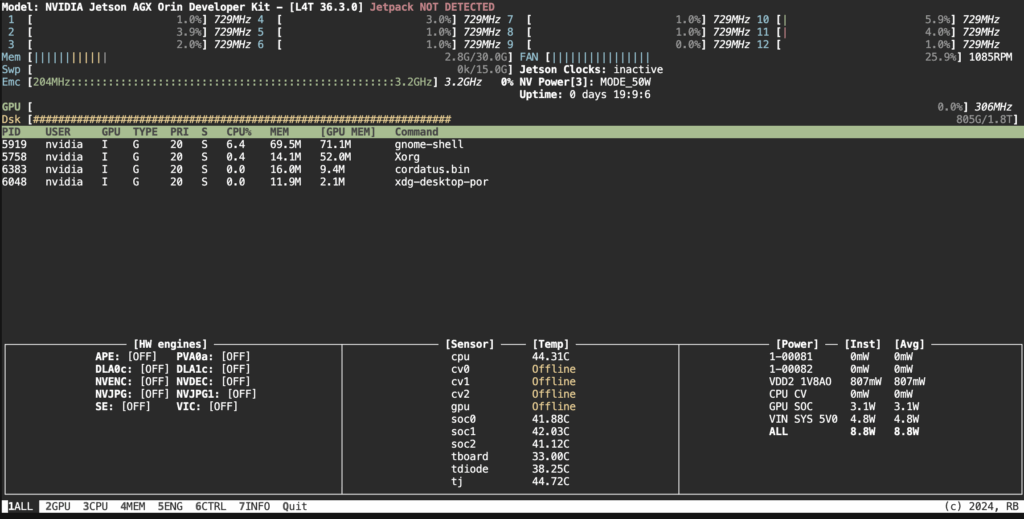Jetson Generative AI – JupyterLab Development Environment

JupyterLab turns your Jetson into a powerful interactive development environment for AI, data science, and ML. It provides the familiar building blocks of classic Jupyter Notebook (notebooks, terminal, text editor, file browser, rich outputs) in a flexible UI. With GPU‑accelerated containers, you can train models and prototype solutions directly on your Jetson.

Requirements
|
Hardware / Software
|
Notes
|
|---|---|
| Jetson (Nano / Orin series) ≥ 4 GB RAM | 8 GB+ recommended for larger notebooks and models |
| NVMe SSD | Highly recommended for faster I/O and model storage (microSD works but slower) |
| JetPack 5.0+ or 6.0+ | Latest versions recommended for best container support |
| NVIDIA Container Toolkit | Installed with Jetpack , if not you can install here . |
| Docker | May require manual install on JP6 |
Step‑by‑Step Setup
1. Verify JetPack Installation
First, check your JetPack version and ensure Docker is working:

2. Create a persistent workspace
Use a dedicated workspace so notebooks/files persist outside the container:
3. Launch JupyterLab with GPU
The dustynv/jupyterlab image provides JupyterLab on port 8888. Note that newer JetPack versions use different container tags:
4. Set your own password

Your password is stored at ;
/root/.jupyter/jupyter_server_config.json.
5. Access the Web UI
Open your browser and navigate to:
http://localhost:8888/lab (on the Jetson itself)
http://:8888/lab (from another device on your LAN)

You can change your password like this:
In JupyterLab → Terminal (or from host via docker exec):
6. Verify GPU access
Outside the container run:
to verify gpu usage.

7. Advanced: Mount additional data sources
For complex projects, mount additional host directories:
Sample AI Workflows
Computer Vision Pipeline (GPU-accelerated):
Natural Language Processing:
Troubleshooting
Common Issues & Solutions:
JupyterLab won’t start:
Out of memory errors:
- Reduce batch sizes
- Use gradient checkpointing
- Enable mixed precision training
- Monitor with tegrastats

Package installation failures:
- Check Python version compatibility
- For OpenCV, prefer JetPack’s optimized version
- Use pip install –no-cache-dir for memory-constrained installs
Additional Resources
For the latest updates and community discussions, visit the NVIDIA Developer Forums.